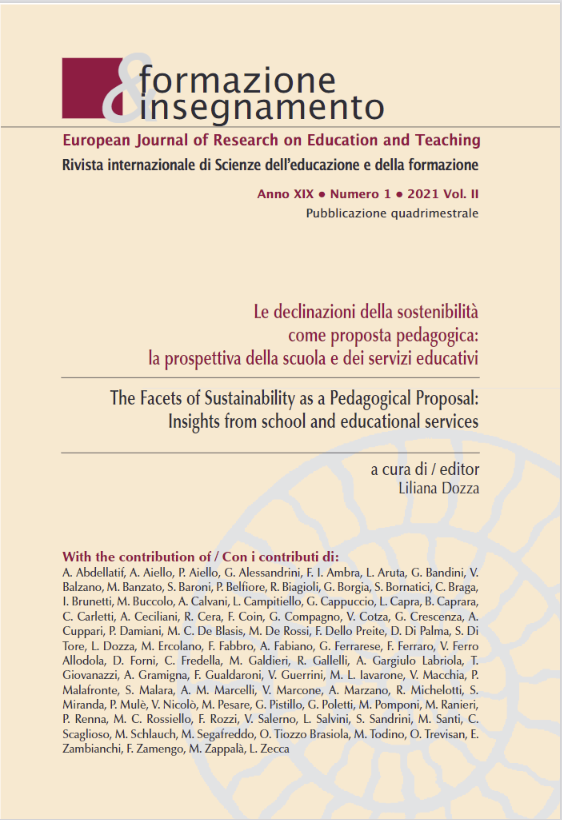Sustainability' in the new Teacher Education and School Organizational Models at the Time of Post-Covid-19
DOI:
https://doi.org/10.7346/-fei-XIX-01-21_52Abstract
Since the last century there has been much reflection on the construct of sustainability both from an environmental, social and cultural point of view, and political scientists, ecologists, economists, journalists but also pedagogists have discussed it. During 2020, the European Commission considered sustainable development as a vital core of the 2030 Agenda, so much so that it elaborated 17 Sustainable Development Goals SDGs and the 169 sub-objectives associated with them to be achieved in the decade 2020- 2030. This essay deals with the issue of sustainability in relation to the new training models of teachers and school organization at the time of Covid-19, starting from the IV objective of the 2030 Agenda: To guarantee inclusive and equitable quality education and to promote opportunities for continuous learning for everyone. It follows that sustainable development appears to be a solid and useful conceptual framework from which to build a fair and sustainable well-being in the classroom and, consequently, in society, for the benefit of future generations.
Downloads
Published
How to Cite
Issue
Section
License
Copyright (c) 2021 Pensa MultiMedia

This work is licensed under a Creative Commons Attribution 4.0 International License.
Formazione & insegnamento is distributed under Attribution 4.0 International (CC BY 4.0).
For further details, please refer to our Repository & Archiving Policy, as well as our Copyright & Licensing Terms.





